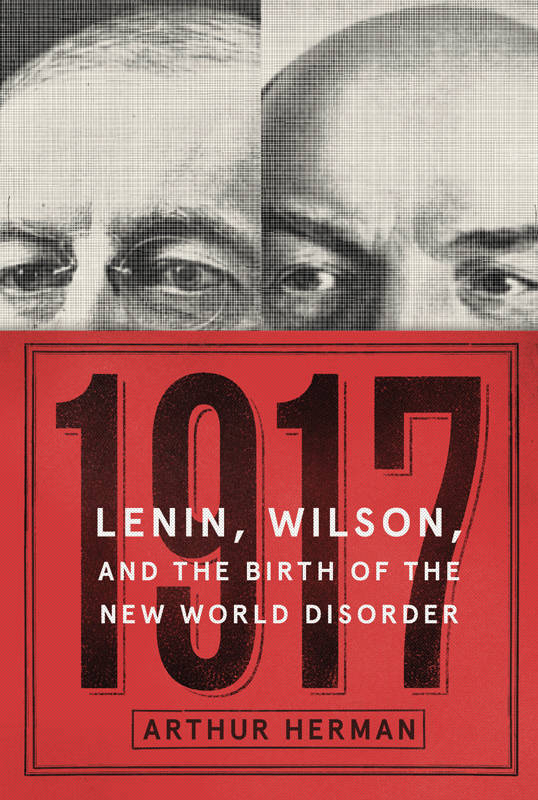
1917
Vladimir Lenin, Woodrow Wilson, and the Year That Created the Modern Age
- اطلاعات
- نقد و بررسی
- دیدگاه کاربران
نقد و بررسی

June 15, 2017
Author of the New York Times best seller How the Scots Invented the Modern World and the Pulitzer Prize finalist Gandhi and Churchill, Herman tells the story of the crucial year 1917 by comparing and contrasting two significant leaders of the era: Vladimir Lenin and Woodrow Wilson. He also argues that an intense rivalry between the two men (who never met) significantly influenced geopolitics at the time--and for decades to come.
Copyright 2017 Library Journal, LLC Used with permission.

October 1, 2017
Dual biography of two men who stand in this account as avatars of worldwide change in a critical historical moment.Woodrow Wilson and Vladimir Lenin are not, on the face, a natural pairing in the same way that the murderous dictators Hitler and Stalin are. Then again, Hudson Institute senior fellow Herman (Douglas MacArthur: American Warrior, 2016, etc.) did put Gandhi and Churchill together in a study of the decline of the British Empire, and putting Wilson and Lenin together does help to show how the foreign policy of the nascent superpowers, the United States and the Soviet Union, would have as their overarching goal not "to protect their own national interests as narrowly understood, as almost all nations understood foreign policy before 1917, but to make others see the world as they did." For Wilson, this was a longtime insistence on a Pax Americana, formulated well before World War I, and one of the newsworthy aspects of Herman's readable, engaging book is that Lenin once approached the U.S. with "a bizarre offer": since, for obvious reasons, Germany could no longer be Russia's chief industrial partner, as it had been before the war, then why not America? In exchange for help modernizing Russia, then, the U.S. would have had oil, mineral resources, and fur. "For a few tantalizing days...the world rocked on its hinges at the prospect of a future U.S.-Russian consortium dominating the postwar world," writes Herman--but Wilson declined. Another great what-if: Germany declined the offer to stop fighting with status quo, meaning it could keep conquests and colonies in exchange for peace. In either instance, the world today would be much different from what it turned out to be, which, rather than Wilson's much-longed-for peace, was a century of endless conflict.Mixing both real events and a few moments of speculation, a fine account of a climacteric year.
COPYRIGHT(2017) Kirkus Reviews, ALL RIGHTS RESERVED.

November 1, 2017
Herman finds similarities, though stretches to find some of them, in the seemingly very different personalities of Vladimir Lenin and Woodrow Wilson. Both were dreamers and stubborn idealists, and both were instrumental in shaping the new world, through America's entry into WWI and the Russian Revolution. With the coming of the war, Great Britain had high expectations that the U.S. would abandon its neutrality stance and join the war on Britain's side. The author of Gandhi & Churchill (2008) returns here to the dual-biography approach, jumping from location to location and, in its early stages, from time to time, which adds to the account's drama and suspense. The postwar world hinged on the principle of self-determination of peoples, but the different interpretations of that principle caused the post-1917 disorder, which is the critical component of the author's argument linking Wilson and Lenin. Herman covers some well-trod ground here, but his thesis does provide a new way of seeing the period.(Reprinted with permission of Booklist, copyright 2017, American Library Association.)




دیدگاه کاربران